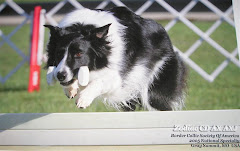Hepatitis is an inflammation of the liver. There are many causes of hepatitis and and many of the signs and treatments are similar. Obviously, this post will focus on the type caused by canine adenovirus type 1. The virus usually enters the body via an oral or nasal route and does not require direct dog to dog contact. It can be spread on food bowls, via people, etc. The incubation period is 4-6 days.
Clinical signs of hepatitis can vary widely and include fever, GI signs, abdominal pain, enlarged liver, fluid in the abdomen, depression, anorexia, acute renal failure, and many more. Labwork abnormalities include decreased white blood cell count, elevated liver enzymes, prolonged clotting times, protein and bilirubin in the urine. There are special tests that can be sent to the laboratories to make an official diagnosis of adenovirus type 2 but this it is not usually necessary to do so in order to formulate an appropriate treatment plan. Bile acids test (a liver function test) may also be abnormal.
As you might expect there is no specific treatment for the actual virus. Treatment, like the other viral diseases is aimed at limiting damage, preventing secondary infection and controlling clinical signs. Typical treatments would include appropriate IV fluids, antibiotics, anti-emetics if needed, plasma or blood transfusions (to correct clotting disorders and protein losses), antioxidants/hepatic support supplements, etc.
Dogs with a poor immune response may not survive the initial infection. Other dogs may recover but have some long term effects. Because the virus is deposited in the ocular tissues and the kidney some dogs may develop uveitis, corneal edema, or nephritis. Uveitis is an inflammatory condition of the eye and corneal edema is essentially a swelling of the cornea (the clear part of the eye). Although this condition will often resolve in some cases it can progress to glaucoma and corneal ulceration. Nephritis is an inflammation of the kidneys and may lead to chronic renal disease. Some dogs will also develop chronic liver disease or fibrosis.
Virus is shed in the urine of recovered dogs for 6-9 months.
Unvaccinated dogs less than one year of age are (not surprisingly) at the most risk. The adenovirus type 2 vaccine is cross protective and prevents CAV-1 infection. As previously discussed this vaccine is given at 2-4 week intervals in puppies, one year later and then every 3 years or at whatever interval you and your veterinarian decide.
Snow Day
4 days ago


.jpg)
.jpg)



.jpg)



2 comments:
This is one I haven't experienced in my dogs and hope I never do.
Interesting, that's one I have not been familiar with :-)
Post a Comment